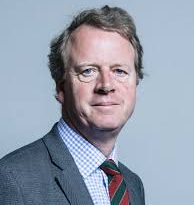Andrew Rosindell – 2015 Parliamentary Question to the Department for Education
The below Parliamentary question was asked by Andrew Rosindell on 2015-12-07.
To ask the Secretary of State for Education, what proportion of the history curriculum in state schools is comprised of British history.
Nick Gibb
All young people should, as part of a broad and balanced education, acquire a firm grasp of the history of the country in which they live, and learn how different events and periods relate to each other. That is why the history curriculum, taught in maintained schools for key stages 1 to 3 from September 2014, sets out, within a clear chronological framework, the core knowledge that will enable pupils to know and understand the history of Britain from its first settlers to the development of the institutions that help to define our national life today.
The new GCSE content criteria require a minimum of 40 per cent British history, an increase from the 25 per cent required under the previous GCSE. The A level content criteria require a minimum of 20 per cent British history. The new GCSE will be taught from 2016, with first examination in 2018. The new A level has been taught since September 2015, with first examination in 2017.
Alongside geography, history is one of the two subjects in the humanities pillar of the EBacc. The EBacc consists of the core group of subjects that provide a rigorous academic education and the government’s goal is that, in time, 90 per cent of pupils will enter GCSEs in the EBacc subjects. The numbers studying GCSE history had been stagnant for a decade before the introduction of the EBacc. With the introduction of the EBac performance measures the proportion of the cohort entered for history in state fundedschools has risen from 30 per cent of pupils in 2010 to a provisional figure of 40 per cent in 2015.


